Health Foods That Aren’t Actually Healthy
Rice cakes, veggie chips, fat-free foods―they're good for you, right? Not always.

Navigating the dusty isles of the grocery store can be a daunting enough task itself. Combine that with the often overwhelming options of “health foods” that promise to help you lose weight, gain muscle, or generally keep your body in peak condition. While many of these foods do provide nutritious benefits, many provide nothing more than false promises.
So while you may have been shamelessly snacking on that $9 “healthy” granola bar, you might as well have swapped it out for a bag of M&Ms. While the following list may be a tad hard to read, if not also slightly disheartening, it’s important to know what foods plastered with health-related packaging claims are actually falling short in the nutritional department.
Rice Cakes
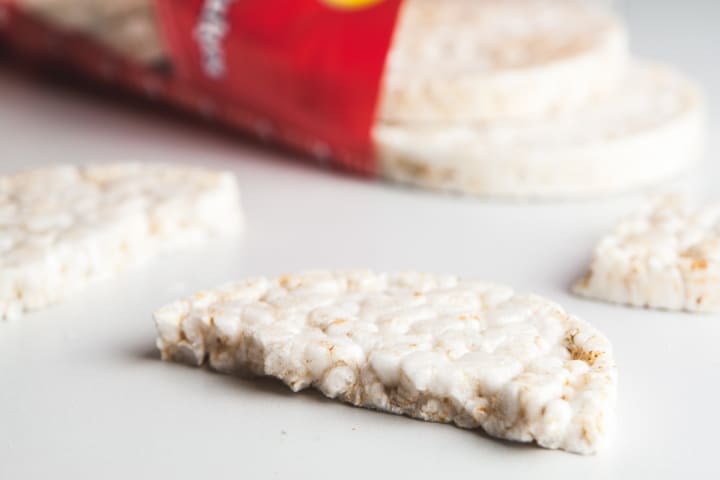
Rice cakes have been around for decades and have long been a dry and flavorless staple of the traditional run-of-the-mill diet. Normally recommended as a “healthy” snack for those watching their weight, while low in fat and calories, they’re also pretty low in nutritional value.
Most provide a single gram of protein and fiber per cake, without almost any other nutrients to speak of. While flavored versions are available in an attempt to curb the cravings of anyone looking to eat food with actual taste, they’re often rife with artificial sweeteners, flavors, and colors.
Granola

Coming in variety of flavors and combinations, granola is staple for many athletes and people on the move. Convenient and supposedly packed with high fiber fruit, what could be unhealthy about that?
Turns out, while extremely delicious, most mass produced granolas are filled with an overwhelming amount of calories and added sugar. Often overpriced and filled with candy, unless the granola is made at home or significantly limited in ingredients, it’s about as healthy as eating your average candy bar.
Fruit Juices
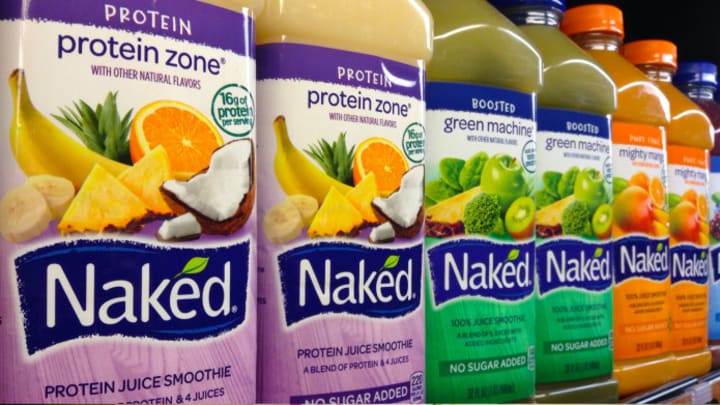
If I had a dollar for every time someone tried to tell me the Naked juice they were drinking was healthy for them, I could hire my own private chef. Most bottled fruit juices are incredibly deceiving often promoting their all-natural product on the label. Unfortunately, though, drinking a Naked is not much different than drinking a Mountain Dew. Both beverages contain almost 60 grams of sugar and no fiber to help regulate it, which basically means you’re just consuming all the pad parts of fruit. This goes for most fruit juices, so be cautious.
Veggie Chips
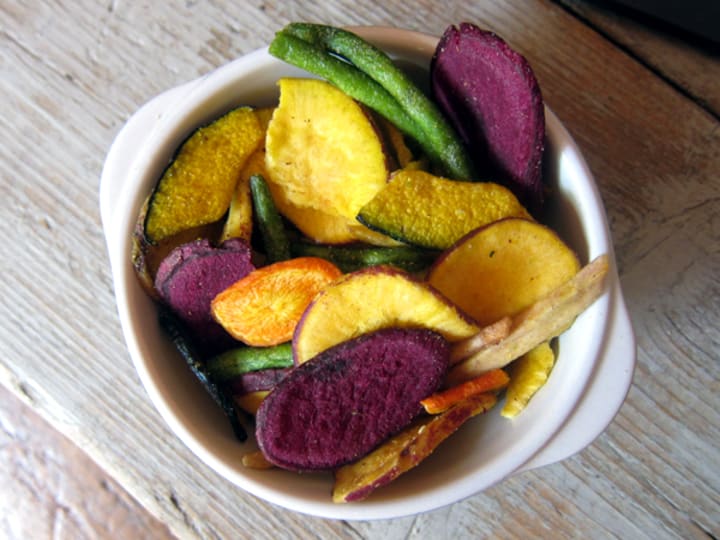
Veggie chips have become a recent hit, promising your favorite part of the traditional potato chip (the crunch!) along with the health benefits of vegetables. It’s a win-win! Except, not so much. Most packaged chips that claim to be chockfull of vegetables are made mostly of potato starch or corn flour. Usually, the only "veggie" you're getting is a weak tint of color from vegetable powders. Womp womp.
Clif Bars
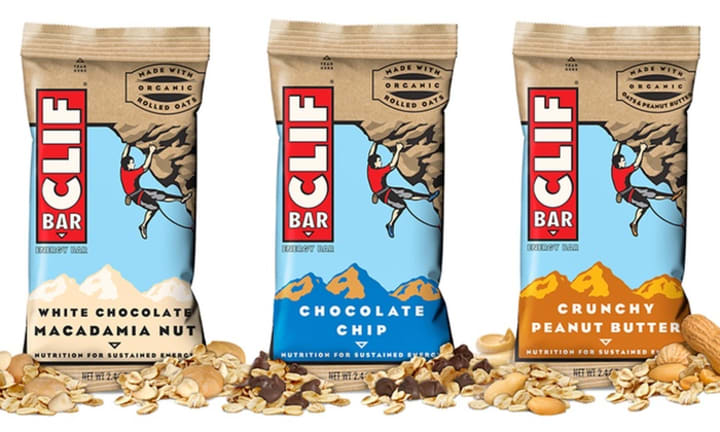
I know what you’re thinking, “But it has someone doing outdoor activities on the wrapper!” I know. I'm shocked too. Unfortunately, the ever popular energy bar lists its first ingredient as sugar and they range from anywhere between 230-270 calories, which means that you would literally be better off eating a Snickers. This goes for many other energy bars as well. Be wary of packaging and make sure you read the ingredients before buying.
Instant Oatmeal
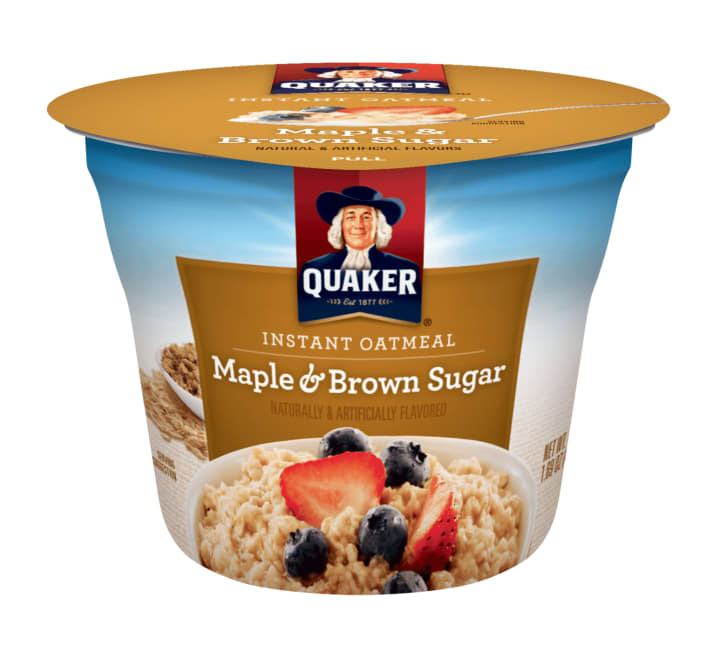
Oatmeal, the meal that every good natured mother on literally every classic TV show made for their children before school each morning. They promised it was full of healthy nutrients and would keep them full until lunch. Problem is that oatmeal, albeit largely instant oatmeal, doesn’t do your health any justice.
Oatmeal can be a great whole-grain energy source. Or, it can be a sweet bowl of refined carbs that leave you starving mid-morning. The primary oatmeal culprits are the refined instant varieties that have way too much added sugar, and therefore, way too many unnecessary calories. Avoid these by sticking with the giant tub of instant oatmeal if you like the convenience factor and add fruit and spices like cinnamon and nutmeg to maximize flavor without minimizing any health benefits. Steel cut oats are even better; they’ll provide you with long-lasting energy, help promote weight loss, and lower your risk of heart disease.
Sports Drinks
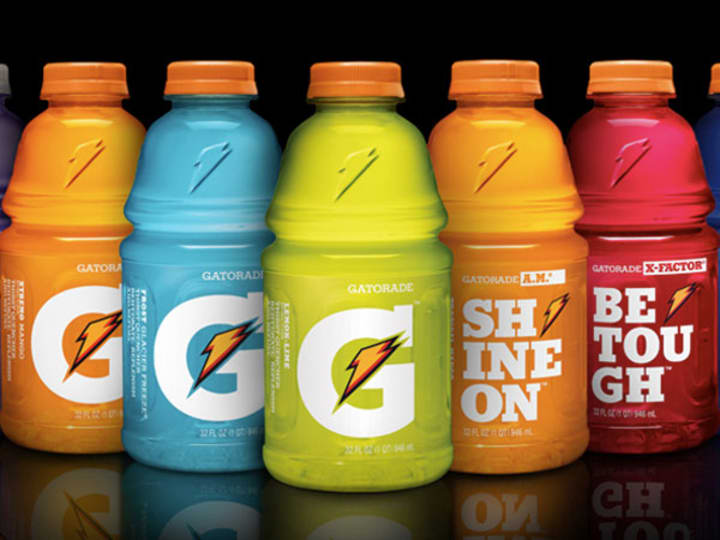
A study published in the journal Obesity, recently found that individuals who drink one or more sports drinks every day gained more weight over a three-year span than those who don’t. The problem with energy drinks lies in the fact that they’re a lot like Kool Aid—they’re basically just sugar water and artificial food coloring. Their big selling point, electrolytes, are easily restored with natural foods and drinks like coconut water and bananas, so skip the artificial recovery drink.
Vegan Baked Goods
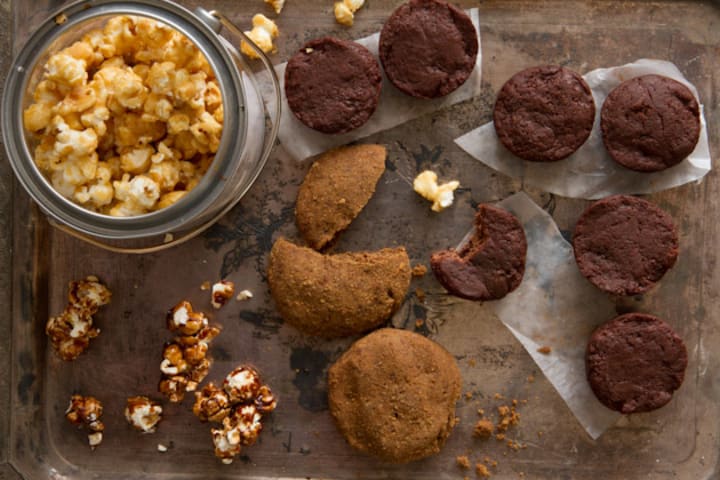
Pita Chips
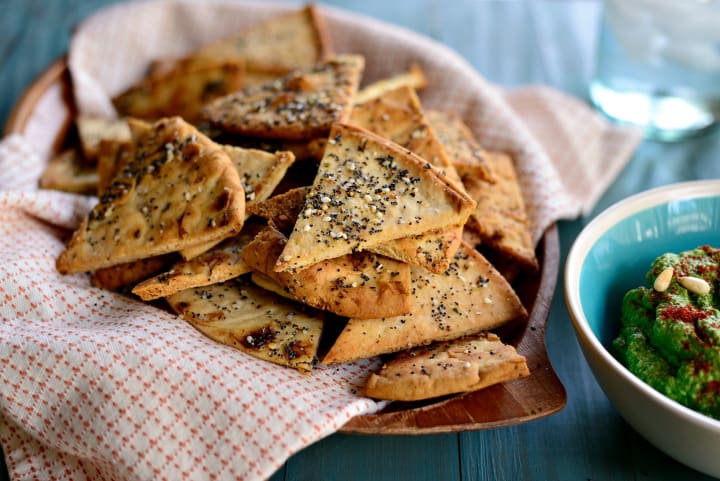
Frozen Veggie Burgers
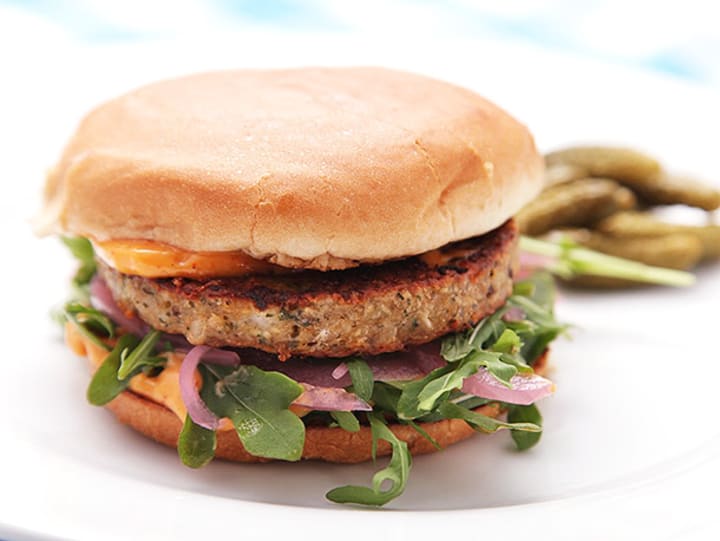
Low-Fat Salad Dressing

Sushi
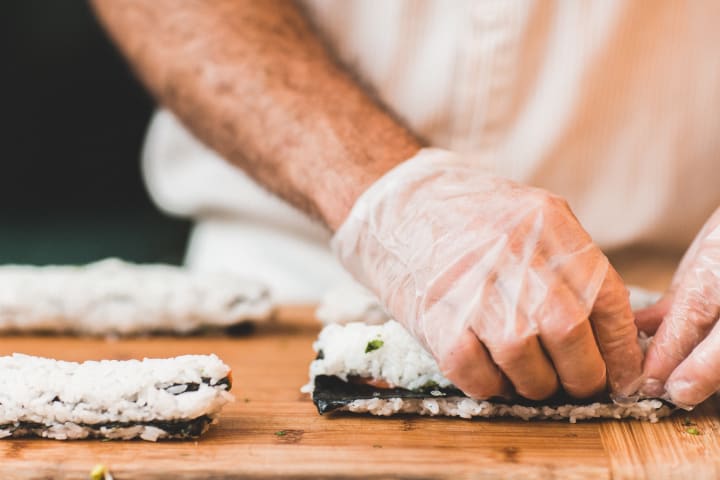
High-protein, low-carb sushi certainly wins out over fast-food burgers and fries if you're looking for a quick dinner, but it's surprisingly easy to overdo it on mercury if you're eating sushi often. Fish commonly utilized in sushi rolls, like tuna, sea bass, and swordfish, are among the ocean's worst for mercury contamination. So like many other “healthy" options, it’s better to either skip it or definitely reduce your consumption of it.
Yogurt Covered Snacks
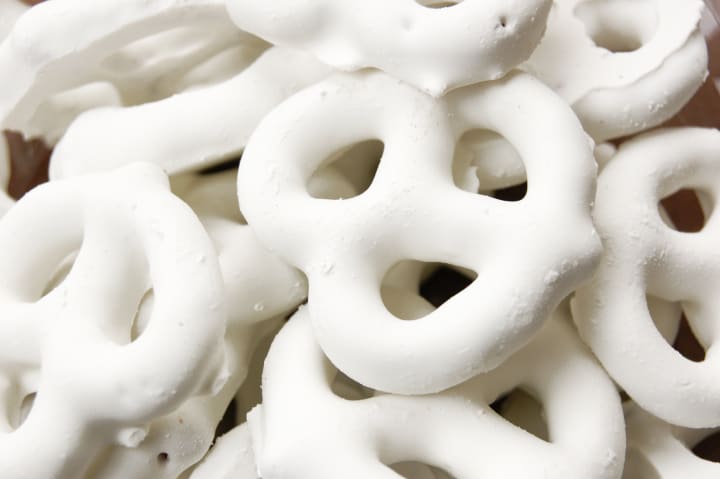
I’m going to let you in on a secret: yogurt-covered snacks sometimes aren’t covered with actual yogurt. Those tubs of pretzels and raisins are likely just covered in sugar (and fat). More specifically, a ¼-cup serving of yogurt-covered raisins has about 150 calories, a third of which comes from fat, while the rest comes from carbs. Want an easy fix? Top your raisins with plain Greek yogurt.
Dried Fruit
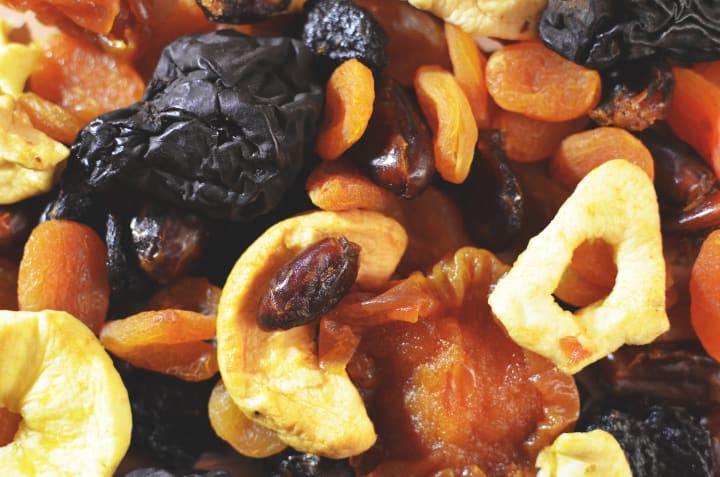
Multi-Grain and Wheat Bread

Fruit Cocktail
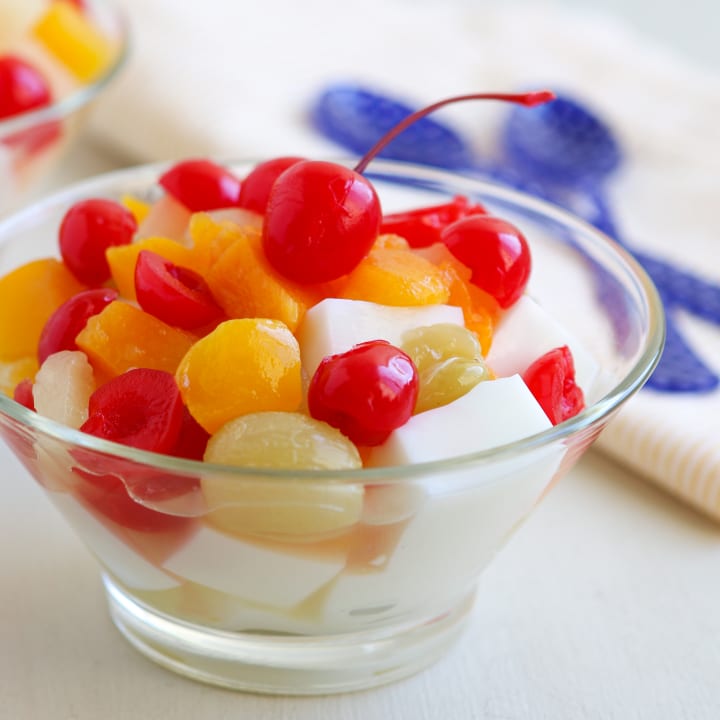
About the Creator
Alysha DePerna
Book nerd and lover of all things cheese flavored. Highly skilled at Google and considers coffee medicinal.






Comments
There are no comments for this story
Be the first to respond and start the conversation.